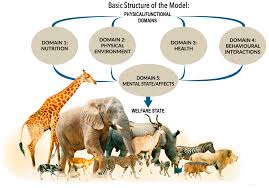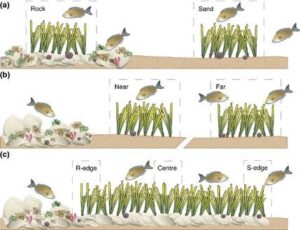Back to: ZOOLOGY 500 Level
Welcome to class!
Hello my amazing scholar! I hope you’re doing great and staying motivated. I’m so glad you’re here, because this topic is very close to the heart of every good scientist. As someone studying Zoology, it’s not just about observing animals and ecosystems—it’s also about respecting and protecting them. Today, we’ll talk about the values that guide how we treat animals and their homes. Let’s walk through this together, gently and wisely.
Ethical Guidelines For Working With Animals And Habitats
What Are Ethical Guidelines?

Ethical guidelines are a set of rules or principles that help us know the right thing to do, especially when it comes to dealing with living organisms and the environment. They help ensure that our actions, even in research, are respectful and responsible. In Zoology, ethics is not just a nice idea—it’s a must.
Respect for Animal Welfare
Every animal, whether it’s a laboratory rat or a wild antelope, deserves to be treated with care and dignity. Ethical fieldwork requires that we avoid causing unnecessary pain, stress, or harm to animals. If you’re tagging a bird to track its migration, it must be done quickly, gently, and in a way that doesn’t interfere with its survival.
Minimising Habitat Disturbance
When we enter a forest or wetland to study species, we are visitors. Ethical guidelines remind us not to damage the environment—don’t crush plants, start fires, leave litter, or disrupt nesting areas. We’re meant to observe nature, not destroy it. Even when collecting samples, it must be done sparingly and with proper authorisation.
Informed Consent and Community Respect
In many parts of Nigeria, local communities live close to or within natural habitats. Ethical research requires that you inform and respect the people living there. If your research involves community lands or sacred forests, you must seek permission and explain your purpose clearly. Science must walk hand in hand with culture.
Use of Permits and Legal Approval
Before handling animals or entering protected areas, researchers are required to get legal permits from environmental and conservation authorities like NESREA or state wildlife agencies. These permits ensure that your work is documented, safe, and accountable.
Safe Handling and Humane Methods
When capturing, tagging, or examining animals, ethical methods must be used. For instance, traps should not injure animals, and sedation (if needed) must be done professionally. Animals should never be kept for longer than necessary, and they should be released in the same area where they were captured.
Accurate Reporting and Transparency
Your field notes, reports, and publications must reflect the truth. Never fake data or exaggerate findings. If you made a mistake during your research, be honest about it. Scientific integrity means being truthful, even when it’s hard.

Real-Life Example
Let’s meet Emmanuel, a 500-level Zoology student from University of Jos. He is studying pangolin behaviour in a forest reserve. Before starting, he applies for a permit, informs the local community, and works with a conservation NGO. He avoids disturbing their burrows and uses night cameras instead of live traps. Emmanuel’s ethical approach earns him respect, reliable data, and even an invitation to join a conservation project after school.
Summary
- Ethical guidelines help researchers treat animals and habitats with respect.
- It includes ensuring animal welfare, protecting habitats, and respecting local communities.
- Legal permits must be obtained before conducting research.
- Honesty, safety, and cultural awareness are key to ethical fieldwork.
Evaluation
- What are ethical guidelines in the context of zoological fieldwork?
- List two ways you can minimise harm to animals during research.
- Why is it important to seek community permission during fieldwork?
- Mention one government agency that gives permits for wildlife research in Nigeria.
You are not just learning to be a scientist—you’re growing into a guardian of life. Your passion and your values will shape the future of wildlife and nature in Nigeria and beyond. Keep showing up, keep learning, and always remember—Afrilearn is here to help you grow, one step at a time. You’re doing great, and your future is bright!
